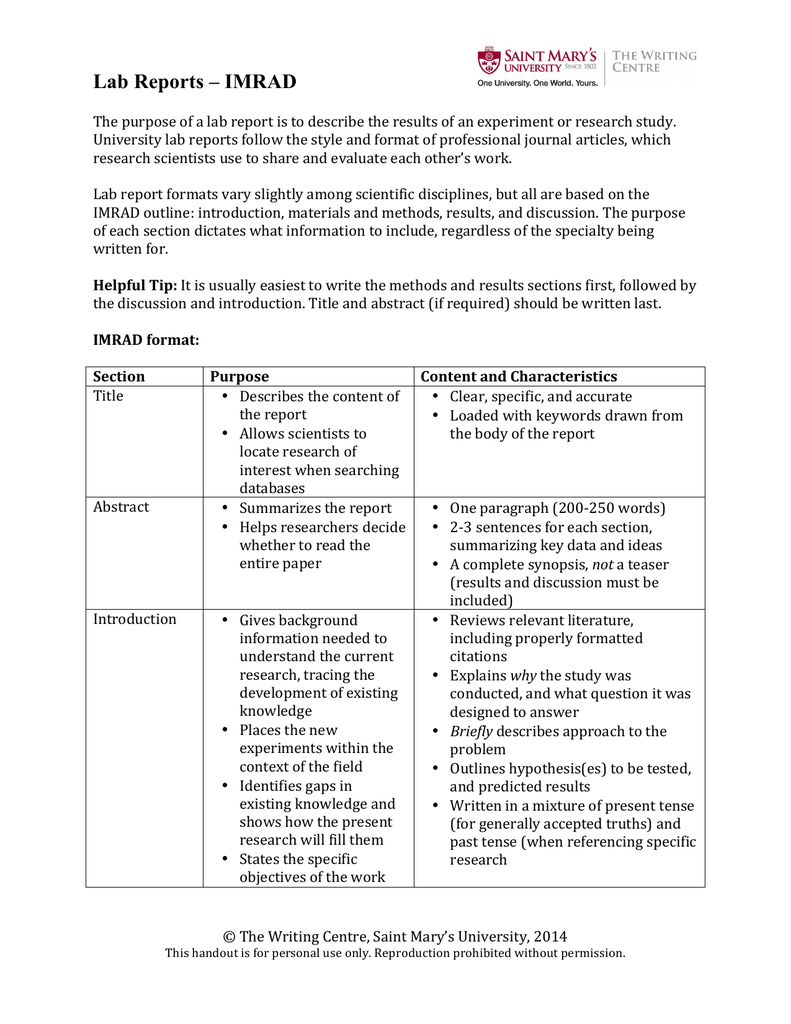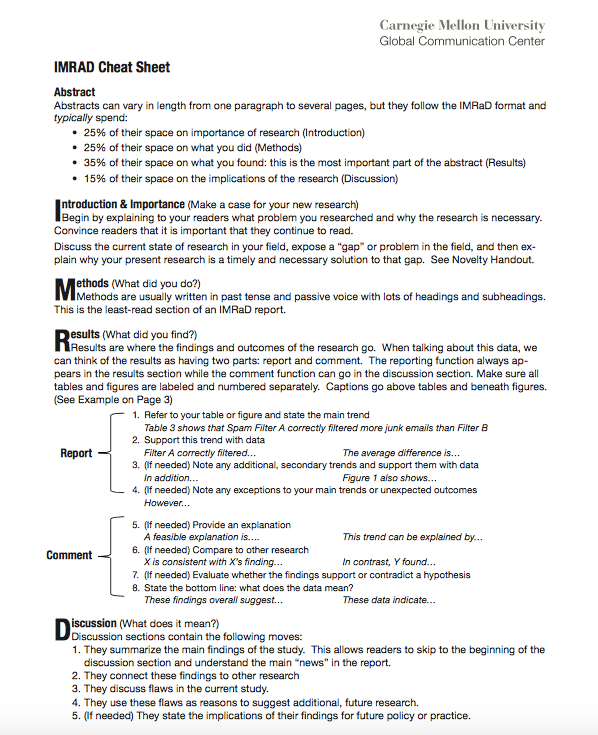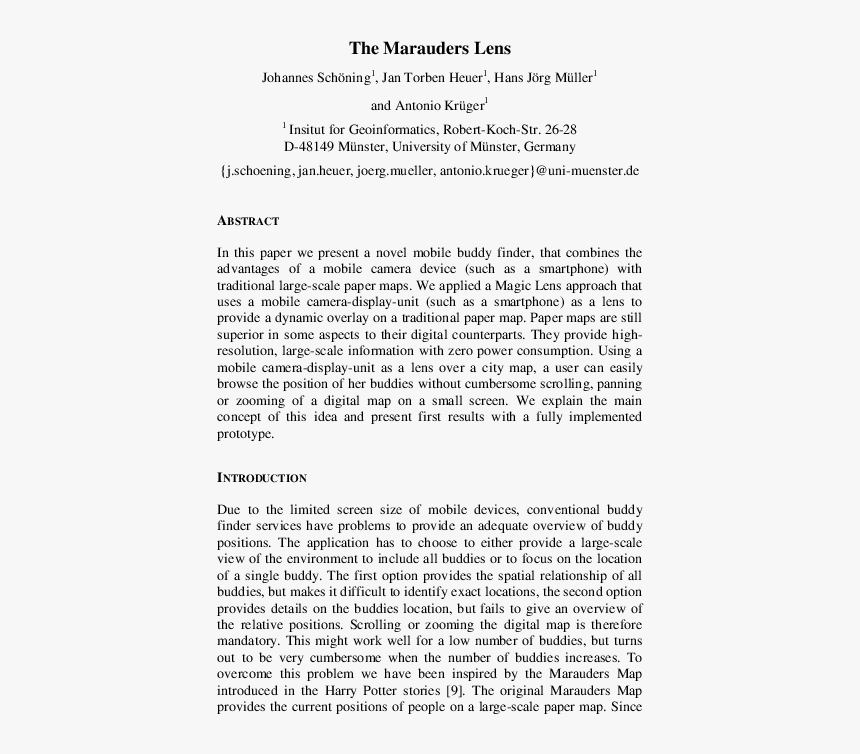
Document Information
21/09/ · An IMRaD abstract is typically a single paragraph of words. However, abstract conventions can vary by discipline or publication venue (e.g., journal). Because the IMRaD abstract is a concise summary of the whole paper, writers draft their abstracts after they have written a full draft of their IMRaD report After , the IMRAD structure takes the lead. As an example, Figure 2 shows the text organization in the British Medical Journal from to The ascending curve represents the IMRAD articles. It is the same as shown in Figure 1, and the descending curves represent all other forms of text organization Methods. The Methods section describes exactly what you did to gather the data that you use in your paper. This should expand on the brief methodology discussion in the introduction and provide readers with enough detail to, if necessary, reproduce your experiment, design, or method for obtaining data; it should also help readers to anticipate

Uploaded by
Scientific Writing: IMRAD Format A common scientific writing format is IMRAD, which stands for Introduction, Methods, Results, And Discussion. For example, if you had a sample size of only four, saying that 25% of respondents felt a certain way may be irrelevant and misleading 21/09/ · An IMRaD abstract is typically a single paragraph of words. However, abstract conventions can vary by discipline or publication venue (e.g., journal). Because the IMRaD abstract is a concise summary of the whole paper, writers draft their abstracts after they have written a full draft of their IMRaD report 15/06/ · IMRaD is an acronym for Introduction, Methods, Results, and Discussion. It describes the format for the sections of a research report. The IMRaD (or IMRD) format is often used in the social sciences, as well as in the STEM fields. IMRD: The Parts of a Research Paper. Credit: IMRD: The Parts of a Research Paper by Wordvice Editing Service on Author: Michele Nicole Johnson

Writing in Different Genres
Scientific Writing: IMRAD Format A common scientific writing format is IMRAD, which stands for Introduction, Methods, Results, And Discussion. For example, if you had a sample size of only four, saying that 25% of respondents felt a certain way may be irrelevant and misleading Methods. The Methods section describes exactly what you did to gather the data that you use in your paper. This should expand on the brief methodology discussion in the introduction and provide readers with enough detail to, if necessary, reproduce your experiment, design, or method for obtaining data; it should also help readers to anticipate 15/06/ · IMRaD is an acronym for Introduction, Methods, Results, and Discussion. It describes the format for the sections of a research report. The IMRaD (or IMRD) format is often used in the social sciences, as well as in the STEM fields. IMRD: The Parts of a Research Paper. Credit: IMRD: The Parts of a Research Paper by Wordvice Editing Service on Author: Michele Nicole Johnson

Outline of Scholarly Writing
After , the IMRAD structure takes the lead. As an example, Figure 2 shows the text organization in the British Medical Journal from to The ascending curve represents the IMRAD articles. It is the same as shown in Figure 1, and the descending curves represent all other forms of text organization Methods. The Methods section describes exactly what you did to gather the data that you use in your paper. This should expand on the brief methodology discussion in the introduction and provide readers with enough detail to, if necessary, reproduce your experiment, design, or method for obtaining data; it should also help readers to anticipate 21/09/ · An IMRaD abstract is typically a single paragraph of words. However, abstract conventions can vary by discipline or publication venue (e.g., journal). Because the IMRaD abstract is a concise summary of the whole paper, writers draft their abstracts after they have written a full draft of their IMRaD report

What is IMRaD?
15/06/ · IMRaD is an acronym for Introduction, Methods, Results, and Discussion. It describes the format for the sections of a research report. The IMRaD (or IMRD) format is often used in the social sciences, as well as in the STEM fields. IMRD: The Parts of a Research Paper. Credit: IMRD: The Parts of a Research Paper by Wordvice Editing Service on Author: Michele Nicole Johnson Scientific Writing: IMRAD Format A common scientific writing format is IMRAD, which stands for Introduction, Methods, Results, And Discussion. For example, if you had a sample size of only four, saying that 25% of respondents felt a certain way may be irrelevant and misleading Methods. The Methods section describes exactly what you did to gather the data that you use in your paper. This should expand on the brief methodology discussion in the introduction and provide readers with enough detail to, if necessary, reproduce your experiment, design, or method for obtaining data; it should also help readers to anticipate
No comments:
Post a Comment